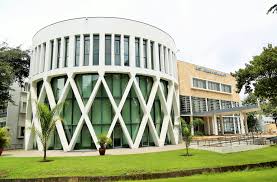By Stephen Ndegwa
The 37th Ordinary Session of the Assembly of the Heads of State and Government of the African Union (AU) took place at the AU headquarters in Ethiopia’s capital city, Addis Ababa from February 17 to 18. The theme of this meeting aims at auditing the social, economic and political developments in the continent, and canvassing solutions to the current and emerging challenges.
Oftentimes when Africa seems to be doing fine, events seem to conspire against its progress. For instance, according to a report published by “Reliefweb” on August 22, 2023, there were more than 40 million Africans forcibly displaced by both internal and cross-border conflicts on the continent. From this number, over 77 percent were internally displaced, which underlines serious political instability within countries.
Some of the major hotspots in the continent include Sudan, Ethiopia, the Democratic Republic of Congo, central Sahel, Cameroon, Somalia, Mali, Mozambique, and South Sudan. Many of these conflicts are instigated by external players who have earmarked the countries’ resources for exploitation, or some powerful countries playing geopolitical poker.
Politics aside, Africa continues bearing the brunt of environmental destruction, particularly the vagaries of climate change. Never mind that the continent is the least polluter. More data from Reliefweb shows that in 2022, the number of people displaced due to natural disasters stood at seven million.
Today, displacement by climate catastrophes has become semi-permanent due to the inability of most countries to resettle those affected after the natural calamity passes. This is a product of funding scarcity as new priorities crop up and relegate hitherto ones to second fiddle. The vicious cycle causes a lot of social stress, and may also lead to a political crisis.
The theme of this year’s summit, “Educate and Skill Africa for the 21st Century,” is apt. It seems to be inspired by the late former South African president, Nelson Mandela, who in one of his quotes said that “education is the most powerful weapon which you can use to change the world.” Mandela’s renowned wisdom must have discerned the fact that the continent is the least developed globally due to an insufficient educated and skilled workforce.
Experts say that Africa still faces serious social and economic challenges because there is still a substantial number of its population that cannot contribute to national development as a result of illiteracy. The continent still carries the highest illiteracy levels in the world across the demographics.
The AU’s “Plan of Action for the Second Decade of Education” (2006-2015) states that “education is an important area whose results directly affect and determine the quality and extent of development in Africa.” Education forms the second goal of AU’s Agenda 2063, which seeks well-educated citizens and a skills revolution, underpinned by science, technology and innovation.
The priority areas in this goal include pursuing a skills revolution driven by education and science, technology and innovation. Further, this goal, like all the others in the Agenda, is plugged in the fourth pillar of the United Nations Sustainable Development Goals, which calls for ensuring an inclusive and equitable quality education and promoting lifelong learning opportunities for all.
Sadly, there has been a massive brain drain from Africa, particularly to the West, in search of better remuneration for education and skills. This has exposed the continent’s institutions and sectors that need to utilize these two assets to grow to international standards. Ways must be sought to hold back the educated and skilled in their countries so they can contribute to their development.
So, where does Africa go from here? The continent must take advantage of its pivotal position in the global scheme of things. African leaders need to re-evaluate their countries’ development partnerships since independence and see which ones have brought in more value, and at what cost. Value for money should be the guiding factor in the choice of effective development partners.
For example, the African Union headquarters was constructed through funding from the Chinese government. Apart from the $200 million grant for the brick and motor construction of the Conference Center and Office Complex, the development package included the establishment of a China-Africa Development Fund, $3 billion in loans for debt relief and development, and $2 billion in export buyer’s credit.
China has stood with Africa both at bilateral and multilateral levels, strengthened by the umbrella Forum on China-Africa Cooperation. The ties have stood the test of time amid various challenges, some of them pushed by an increasingly insecure West. But the steadfastness of the partnership for about two odd decades is a testament to Africa’s resilience and yearning for economic transformation.
Ultimately, Africans should rediscover their self-identity by jealously protecting their cultures. Many African countries are still reeling from the consequences of colonialism, which included stripping them off and deliberately destroying their cultures. The Global Civilization Initiative is one of the most effective vehicles through which the continent can join the international community through cultural mutual respect and mutual learning.
* Stephen Ndegwa is the executive director of South-South Dialogues, a Nairobi-based communications development think tank.











